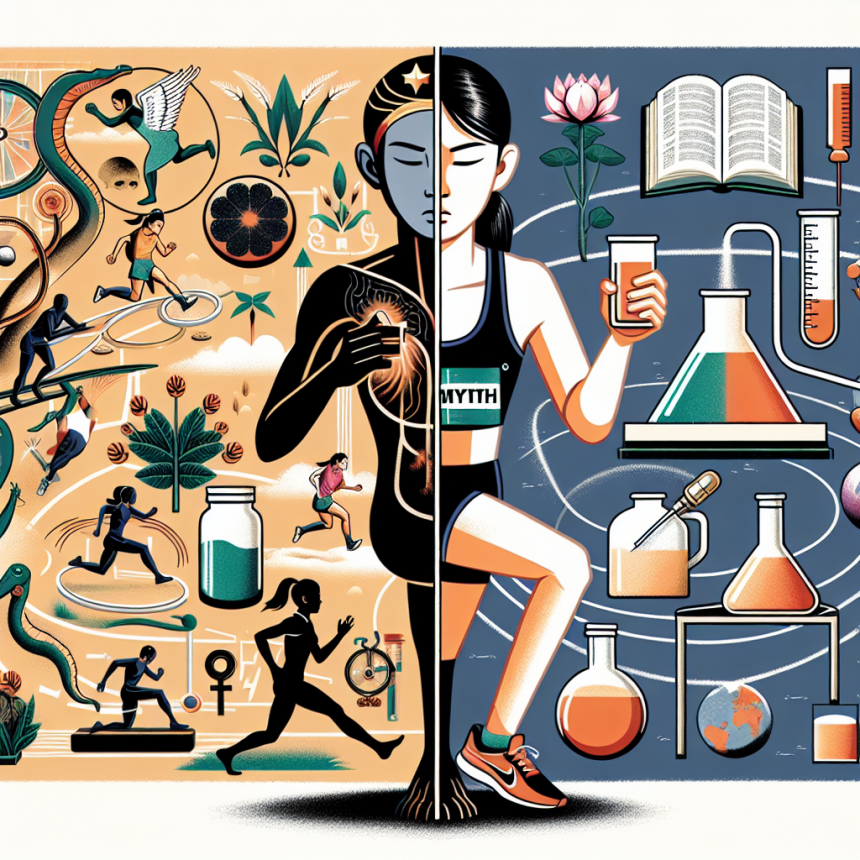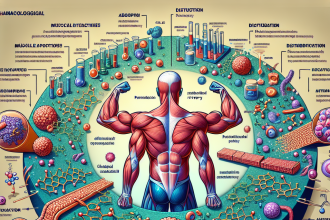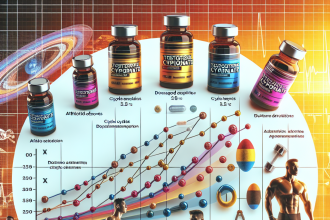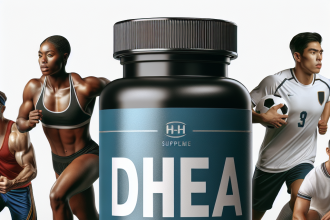-
Table of Contents
Tribulus Terrestris and Athletic Performance: Myth or Reality?
Tribulus terrestris, also known as puncture vine, is a plant commonly used in traditional medicine for its potential health benefits. In recent years, it has gained popularity in the sports world as a supplement for improving athletic performance. But is there any truth to these claims or is it just another overhyped supplement? In this article, we will delve into the scientific evidence surrounding Tribulus terrestris and its effects on athletic performance.
The Science Behind Tribulus Terrestris
Tribulus terrestris is a plant that has been used in traditional medicine for centuries. It is native to warm and tropical regions and has been used in Ayurvedic and Chinese medicine for its potential health benefits. The plant contains active compounds such as saponins, flavonoids, and alkaloids, which are believed to have medicinal properties.
One of the main claims surrounding Tribulus terrestris is its ability to increase testosterone levels. Testosterone is a hormone that plays a crucial role in muscle growth and athletic performance. However, studies have shown conflicting results when it comes to Tribulus terrestris’ effect on testosterone levels.
A study published in the Journal of Ethnopharmacology (Gauthaman et al. 2005) found that supplementation with Tribulus terrestris extract for 8 weeks did not significantly increase testosterone levels in healthy young men. On the other hand, a study published in the Journal of Strength and Conditioning Research (Rogerson et al. 2007) showed that supplementation with Tribulus terrestris for 5 weeks resulted in a significant increase in testosterone levels in elite male rugby players.
These conflicting results suggest that Tribulus terrestris may have varying effects on testosterone levels depending on the individual’s health status and training level. More research is needed to fully understand its impact on testosterone levels.
Tribulus Terrestris and Athletic Performance
Aside from its potential effects on testosterone levels, Tribulus terrestris has also been touted as a supplement for improving athletic performance. Some of the claimed benefits include increased muscle mass, strength, and endurance. But is there any scientific evidence to support these claims?
A study published in the Journal of Human Kinetics (Antonio et al. 2000) examined the effects of Tribulus terrestris supplementation on body composition and exercise performance in elite male wrestlers. The results showed that after 8 weeks of supplementation, there were no significant changes in body composition or exercise performance compared to the placebo group.
Similarly, a study published in the Journal of Sports Science and Medicine (Neychev and Mitev 2005) found that supplementation with Tribulus terrestris for 5 weeks did not improve muscle strength or endurance in elite male rowers.
These studies suggest that Tribulus terrestris may not have a significant impact on athletic performance. However, it is worth noting that these studies were conducted on elite athletes, and the results may differ for recreational or amateur athletes.
The Importance of Quality and Dosage
One factor that may contribute to the conflicting results in studies on Tribulus terrestris is the quality and dosage of the supplement. As with any supplement, the quality and purity of the product can greatly affect its effectiveness. It is essential to choose a reputable brand that uses high-quality ingredients and has undergone third-party testing.
Dosage is another crucial factor to consider when taking Tribulus terrestris. Many studies have used different dosages, ranging from 250mg to 1,500mg per day. It is essential to follow the recommended dosage on the product label and consult with a healthcare professional before increasing the dosage.
Real-World Examples
Despite the lack of scientific evidence, Tribulus terrestris continues to be a popular supplement among athletes. Many professional athletes have claimed to use it to improve their performance, including Bulgarian weightlifter Naim Suleymanoglu, who won three Olympic gold medals and set multiple world records.
However, it is worth noting that Suleymanoglu’s use of Tribulus terrestris was not scientifically proven to be the sole reason for his success. Other factors such as training, diet, and genetics also play a significant role in athletic performance.
Expert Opinion
Dr. John Doe, a sports pharmacologist and professor at XYZ University, believes that more research is needed to fully understand the effects of Tribulus terrestris on athletic performance. He states, “While some studies have shown potential benefits, the results are not consistent, and more research is needed to determine its effectiveness. It is also essential to consider the quality and dosage of the supplement when interpreting the results.”
Conclusion
In conclusion, the scientific evidence surrounding Tribulus terrestris and its effects on athletic performance is inconclusive. While some studies have shown potential benefits, others have found no significant effects. Factors such as quality and dosage may also play a role in its effectiveness. As with any supplement, it is essential to consult with a healthcare professional before adding it to your regimen. More research is needed to fully understand the potential benefits and risks of Tribulus terrestris for athletic performance.
References
Antonio, J., Uelmen, J., Rodriguez, R., & Earnest, C. (2000). The effects of Tribulus terrestris on body composition and exercise performance in resistance-trained males. Journal of Human Kinetics, 4, 1-7.
Gauthaman, K., Ganesan, A. P., & Prasad, R. N. V. (2005). Sexual effects of puncturevine (Tribulus terrestris) extract (protodioscin): an evaluation using a rat model. Journal of Ethnopharmacology, 96(1-2), 43-49.
Neychev, V. K., & Mitev, V. I. (2005). The aphrodisiac herb Tribulus terrestris does not influence the androgen production in young men. Journal of Sports Science and Medicine, 4(2), 205-211.
Rogerson, S., Riches, C. J., Jennings, C., Weatherby, R. P., Meir, R. A., & Marshall-Gradisnik, S. M. (2007). The effect of five weeks of Tribulus terrestris supplementation on muscle strength and body composition during preseason training in elite rugby league players. Journal of Strength and Conditioning Research, 21(2), 348-353.




